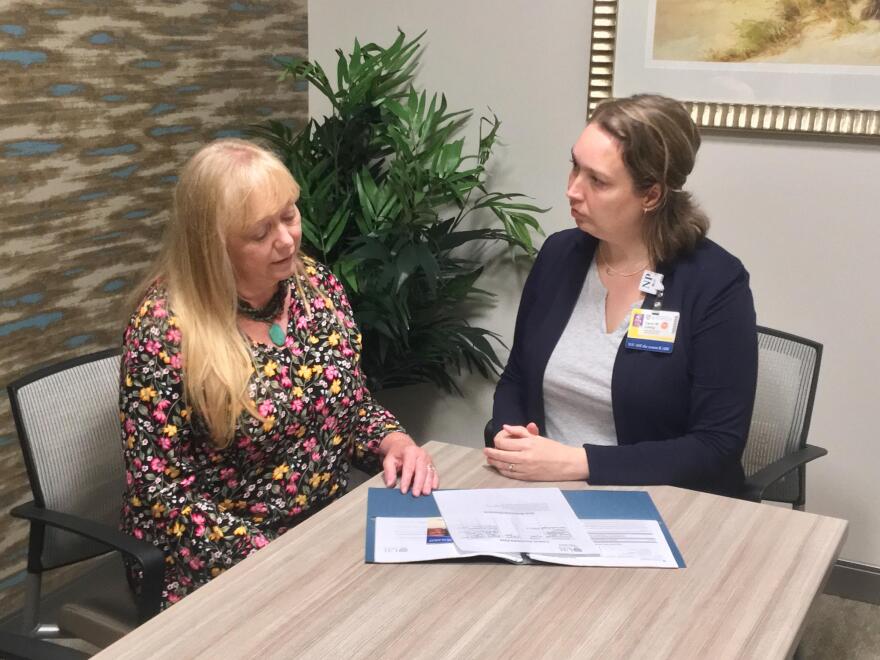Bonnie Smorol had a tough choice. She has two aunts who had cancer that can be caused by a mutation in a certain gene.
Smorol, 60, did not meet the guidelines for genetic screening until the second aunt was diagnosed. Then, she had to decide how much she wanted to know about her own DNA.
“I did choose to be tested,” Smorol said. “I have a daughter with two daughters, so I wanted to see where this was going, and the testing unfortunately came back positive.”
Smorol found that she had a mutation in a gene called BRCA, which increases her likelihood of developing breast cancer. As a result, she now plans to undergo a double mastectomy to reduce the likelihood of the disease developing.
Smorol’s results spurred her daughter to get screened as well.
“She’s negative, so that was awesome news, because my mind went at ease immediately,” said Smorol.
Now, new guidelines for health care providers are expanding the number of people who qualify for genetic screening or counseling. The screening does not detect or diagnose cancer, but it does offer a look into the risk of developing the disease.
Some groups that are at elevated risk of developing certain cancers, like Ashkenazi Jewish women, or passing on risky genes to their children, like women with a personal history of breast or ovarian cancer, are recommended to be screened under the new guidance.
Even before the guidelines were updated, local genetic counselors were urging expanded access to genetic screening.
Still, clinicians acknowledge that opting for the screening can be a difficult decision. Carol Lustig, who’s part of the team that’s caring for Smorol at the University of Rochester Medical Center, said for some people, finding out they’re prone to developing cancer only increases their anxiety.
“Maybe you have a physical symptom, and then your mind is spinning about, ‘What does that mean? Does that mean I have cancer? I feel something, what is that?’ ” Lustig said. “Or maybe you’re a parent, and you find out that your child also has the gene mutation, and so you feel guilty.”
Genetic screening isn’t right for everyone, Lustig said, but she’s working on pilot programs to expand access for people who qualify and want to find out about their genetic risks.





